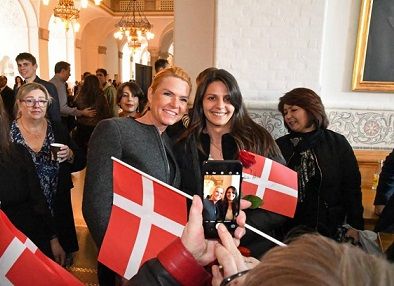Handshakes have been in the news quite a lot lately, partly as a result of undeserving bankers being ushered into the twilight with a hefty payoff, but also as a result of a controversial law regarding Danish citizenship.
As has been widely reported, the latter stipulates that on becoming a Danish citizen, the budding candidate for naturalisation must attend a ceremony in their local municipality and, on receiving the coveted document, shake hands with the local mayor or municipal representative.
Many people have interpreted this as a deliberate dig at certain Muslims who, for religious reasons, are unable to shake hands.
All about mutual respect
Now, Billy O’Shea, a 61-year-old Irish would-be Danish citizen, has entered the fray. In a letter to the immigration authorities, the self-employed translator states that “I am not religious and will happily shake hands with anyone”, going on to point out that he has even shaken hands with the queen when he received his Gold Medal from the University of Copenhagen and felt that it was an honour to do so.
READ ALSO: Political opposition to ‘handshake’ law growing
Crucially, though, O’Shea adds that “in my opinion, a handshake, if it is to be an expression of mutual respect, must necessarily be voluntary. Respect cannot be enforced by law. The idea is, in my opinion, quite un-Danish.”
Finally, he states that “if this bill becomes law, I will refuse to shake hands at the ceremony. And if that costs me my citizenship, then so be it. In that case, it is not worth the price.”
A cultural bedrock?
In an answer from the Ministry of Immigration and Integration, minister Inger Støjberg argues that “based on a fundamental Danish cultural norm that the government feels a handshake is a manifestation of, by performing this symbolic act the applicant will be expressing the special degree of respect for Danish society that the government feels should be a part of being granted Danish citizenship.”
It has been observed that shaking hands is hardly an exclusively Danish phenomenon, so to argue that it is a “fundamental Danish cultural norm” seems to be stretching things more than a little.
The minister continues that “at the same time, the applicant will symbolically signal that they have adopted Danish society and Danish values.”
Rather ominously for Billy, the letter concludes with the less-than-veiled threat that “If you are covered by the new requirements to take part in a constitutional ceremony and won’t shake hands with a representative of the municipality during that ceremony, you will not become a Danish citizen.”
So there!














